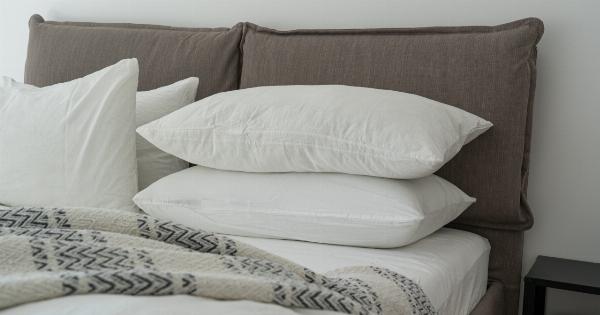Have you ever had trouble sleeping at night? It can be frustrating when you lay there for hours, tossing and turning, unable to sleep.
Sleep is essential to our well-being and it’s crucial that we get enough of it for our minds and bodies to function properly. While there are many solutions out there to help us sleep, essential oils provide a natural and effective option that can help regulate sleep patterns and promote relaxation.
What are essential oils?
Essential oils are volatile and highly concentrated plant extracts that are derived from different parts of the plant, such as leaves, flowers, roots, and bark.
The oils contain the natural scent, flavor, and therapeutic properties of the plant from which they were extracted. These oils have been used for centuries for various purposes, such as aromatherapy, medicinal and culinary applications.
How do essential oils work?
Essential oils work by interacting with the olfactory system, which is responsible for our sense of smell.
When we inhale an essential oil, the scent molecules travel through the nasal cavity and stimulate the olfactory receptors, which send signals to the brain. This, in turn, triggers various physiological and emotional responses, such as relaxation, stress relief, and improved sleep quality.
Best essential oils for sleep
There are many essential oils that can help improve sleep quality and reduce anxiety and stress. Here are some of the best essential oils for sleep:.
Lavender
Lavender essential oil is one of the most popular essential oils used for relaxation and sleep. It is known for its calming and soothing effects on the mind and body.
Research has found that inhaling lavender essential oil can improve sleep quality and reduce levels of anxiety and depression.
Chamomile
Chamomile essential oil is known for its calming and sedative properties. It can help alleviate anxiety, promote relaxation, and improve sleep quality.
Chamomile essential oil contains a compound called apigenin, which can bind to the receptors in the brain that promote sleepiness and reduce insomnia.
Valerian
Valerian essential oil is known for its sedative and anxiety-reducing properties. It can help promote relaxation and improve sleep quality.
Research has found that valerian essential oil can increase the levels of GABA in the brain, which is a neurotransmitter that regulates anxiety and promotes relaxation.
Bergamot
Bergamot essential oil is known for its uplifting and calming properties. It can help alleviate stress and anxiety, and promote relaxation.
Research has found that bergamot essential oil can reduce cortisol levels, which is a hormone that is released in response to stress and can interfere with sleep.
Vetiver
Vetiver essential oil is known for its calming and grounding properties. It can help alleviate anxiety and reduce stress levels, which can improve sleep quality.
Research has found that inhaling vetiver essential oil can increase alpha brain waves, which are associated with relaxation and improved sleep.
How to use essential oils for sleep
There are several ways to use essential oils for sleep:.
- Diffusing: Add a few drops of essential oil to a diffuser and inhale the aroma as it fills the air.
- Topical application: Mix essential oil with a carrier oil, such as coconut or jojoba oil, and apply to the skin.
- Bath: Add a few drops of essential oil to a warm bath to promote relaxation.
- Pillow spray: Spray a mixture of water and essential oil onto your pillow or bedding to inhale the aroma as you sleep.
Conclusion
Essential oils offer a natural and effective solution to sleep issues by improving sleep quality, reducing anxiety, and promoting relaxation. With so many essential oils to choose from, there is an oil to suit everyone’s needs.
Whether it’s diffusing lavender essential oil before bed or adding a few drops of chamomile essential oil to a warm bath, incorporating essential oils into your nighttime routine can enhance your sleep experience and improve overall well-being.


























